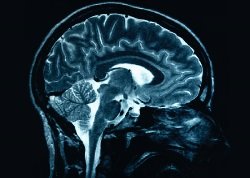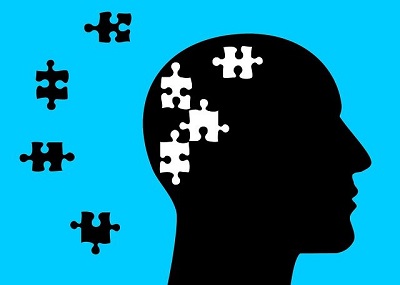- Home
- Better Memory
- Causes of Memory Loss
Causes of Memory Loss & Worsening Memory
There are many causes of memory loss, from brain injury to neurological disease. But before diagnosing yourself with a brain disorder, keep in mind that forgetting is normal.
If you never forgot anything, you'd be helpless. Your mind would be overwhelmed by too much information.
A healthy mind does forget things - lots of things. Many people experience increased forgetfulness as they get older, but this is often just a normal part of the aging process.
Forgetfulness becomes memory loss when the person finds it difficult to function normally, or when a trend of worsening amnesia or gaps in memory becomes apparent.
Common Causes of Memory Loss
Memory loss is a side-effect of a variety of diseases, infections, and conditions. Some causes are direct and immediate such as traumatic brain injury, while others are less obvious and more insidious. Here is a list of common causes of memory loss:
Attention deficits - such as ADD / ADHD; hurts focus and concentration, which can lead to trouble recalling existing memories or making new memories
Alcohol or drug abuse
Anxiety, stress, or depression - hurts focus and concentration
Brain surgery and/or brain tumor - such as meningioma
Cancer treatments - brain radiation, chemotherapy, bone marrow transplant
Concussion or mild head injury
Dementia - such as from Alzheimers disease. Note: There is a natural treatment for Alzheimer's that may improve memory and reduce symptoms.
Diet & eating disorders - lack of proper nutrition for the brain
Electroconvulsive (ECT) therapy - also called electroshock, used to treat severe depression, mania, or catatonia
Encephalitis - brain swelling, often due to infection, autoimmune disease, or from chemicals or drugs
Full-mouth tooth extraction - one of the rarer causes of memory loss
Heart coronary bypass surgery - a theory is that pressure from the heart-lung machine may create tiny blood clots in the brain, leading to memory loss (sometimes referred to as "pump head")
Hypoxia - loss of oxygen to brain cells
Infections affecting the brain - including meningitis, HIV, tuberculosis, Lyme disease, syphilis, Mad Cow disease, and others
Lack of restful sleep - insomnia, excessive fatigue, obstructive sleep apnea, or other sleep disorders
Late-Night Eating - including late dinners and "midnight snacks". According to research, late eating disrupts the activity of the hippocampus during sleep. Normally the hippocampus (an important memory center in the brain) uses sleep time to consolidate new memories. Late eaters may experience weaked ability to learn and to form new long-term memories.
Medications - Chronic use of anticholinergic drugs can cause moderate cognitive impairment (MCI), even dementia. Such medications include common over-the-counter drugs like Benadryl and other antihistamines as well as prescription antidepressants, anti-anxiety meds, muscle relaxants, tranquilizers, sleeping pills, and pain medicine.
Metabolic Syndrome - defined as having three or more of these risk factors: high blood pressure, excess belly fat, high triglycerides, high blood sugar, low HDL (good) cholesterol; in one study, individuals with metabolic syndrome were 20% more likely to have memory loss.
Nerve diseases - including Parkinsons, Multiple Sclerosis, Huntingtons disease
Night terrors - persistent nightmares; if they interfere with achieving restful sleep, and anecdotally thereafter
Normal age-related forgetfulness
Normal Pressure Hydrocephalus (NPH) - and related forms of hydrocephalus. Read Jeanne DeBold's amazing story.
Overweight or Obese - high body fat percentage is associated with a host of brain problems including brain shrinkage, learning problems, memory loss and dementia.
Poor Vision - Vision problems can lead to increased risk of dementia in seniors. Inability to see clearly means those individuals can no longer easily participate in activities that keep their brain healthy and strong, such as social interactions and board games.
Psychological conditions - such as dissociative disorder (e.g., multiple personality disorder), PTSD, schizophrenia, bipolar disorder
Smoking & second-hand smoke - shown by research to reduce oxygen supply to the brain and implicated as a contributing cause of Alzheimer's dementia.
Stress & anxiety - During periods of extreme stress, the stress hormone cortisol can make brain cells in the hippocampus more vulnerable to damage. This can affect learning and retrieval. Working memory can also be impaired by prolonged stress.
Stroke - stops blood supply to parts of the brain; including "silent strokes" or small spots of dead brain cells
Thyroid problems - memory loss due to imbalance of thyroid hormone or other hormones
Tinnitus - ringing or buzzing sound in the ears makes it difficult to pay attention and concentrate
Toxic chemicals & substances - for example, exposure to lead paint, pesticides, PCBs, paint & glue, solvents & varnishes
Traumatic brain injury (TBI) - caused by impacts from car accidents, ATV accidents, horse-riding accidents, or other violent head injuries
Untreated epilepsy & seizures
Vitamin deficiency - especially Vitamin B1 or B12
If you or a family member are experiencing a loss of memory, be sure to consult a physican. There are ways a doctor can identify and treat many of the causes of memory loss. Some conditions are life-threatening and may require immediate treatment.
Testing for the Causes of Memory Loss

Medical testing may be indicated if there are multiple possible causes of memory loss in an individual situation, or if the cause for their loss of memory is simply unknown.
For example, if you experienced a traumatic brain injury, the origin of your memory loss may be obvious. However, lacking any brain injury events, infections, diseases, etc. the cause of the memory problem might not be immediately clear.
In addition to a complete medical history and physical exam, the physician may prescribe medical tests to rule out various causes of memory loss in your situation. Such testing may include:
Blood tests to rule out certain diseases
Cerebral angiography - uses a special dye to show blood flow in the brain
CT (CAT) scan - uses many x-rays to show brain structure
MRI - magnetic resonance imaging, uses magnetism to show brain structure
EEG - electroencephalograph, measures electrical activity in the brain
Lumbar puncture - collects spinal fluid that can be examined for disease
Neuropsychological Examination
Psychological testing can narrow down the type of memory loss you might have. For instance, is your main problem remembering people's names? Or are you now more forgetful of routes, such as how to get to the store? Or are you having problems recalling the details of recent events in your own life?
This kind of memory loss evaluation is called neuropsychological testing. This testing is used to help identify specific problems with memory. Neuropsych testing can look for:
Orientation difficulties
New learning and memory
Intelligence
Language ability
Visual perception
Executive function and decision making
The results of a neuropsychological evaluation, together with your medical history, physical exam, and medical tests, can help your doctor select management steps and a treatment plan for your situation.
Memory Aids, Memory Techniques, & Brain Exercises

Once the cause or causes of memory loss have been identified and memory deficits determined through neuropsych testing, the physician may prescribe medication, surgery, or other options depending on the situation.
The doctor may also advise you to begin cognitive therapy through a qualified speech or language therapist.
Simple memory tools and techniques may also be helpful to aid with daily living. For example, Gweneviere, who experienced a traumatic brain injury in 2008, now takes photographs wherever she goes and writes daily in her journal.
Physical aids that a person with memory loss might find useful include:
Electronic organizers (PDAs), appointment books, or calendars to keep track of appointments and events
Digital camera for taking photos of people and events during the day
Small dish for placing keys, coins, and other loose items
Dry-erase board hung on wall for written reminders
Post-it notes for reminders
Index cards for writing a daily schedule
Pocket notebook and pen to write down people's names and other information
Memory techniques that may be helpful include mnemonic tricks and the memory systems that use mental visualization. Specific memory systems include:
Keyword - for remembering vocabulary and definitions
Link - to remember a sequence of items or events
Peg - to memorize a numbered list of items
Loci or Journey - uses known locations to remember items in sequence
Face-Name - to recall people's names
Phonetic-Number - to memorize long numbers
In addition, exercises that stimulate the brain can help lessen the effects of memory loss. Solving puzzles like sudoku and word searches, playing board games, and other such intellectual activities strengthen the memory. Socializing with others and playing online brain games also helps stimulate the mind.
People experiencing memory loss may find that joining a support group helps diminish their sense of isolation. This can improve mood and thus help with memory.
Most Forgetting Is Normal
None of us like to forget, especially information we need to know for school or work. But forgetting is normal.
Think of the thousands of small sights and sounds you experience every day. You'll forget almost all of this, because to forget is your brain's way of identifying what is important to remember and what is not.

Normal forgetting is not the same as memory loss. Take another look at the causes of memory loss listed above. Most are due to physical or mental disease or brain injury.
It would be impossible to function if you never forgot anything. In the early 1900's, a Russian reporter named Shereshevsky was found to have a near-perfect memory. He didn't ever need to take notes, because he never forgot anything.
But there was a problem. Everything he saw, and every word he heard, called up many related but irrelevant facts. It was hard for Shereshevsky to separate the important from unimportant.
Ultimately his brain became overloaded by details that he couldn't forget. By the end of his life, the only job he could hold was performing memory feats on stage.
Forgetting is useful. It lets us live more effective lives. It allows us to focus on what is important.
But when normal forgetting becomes extreme forgetfulness, amnesia, or memory loss due to illness, injury, or other reasons, it may be time to talk to a physician. Your doctor is the person to consult about the true causes of memory loss you may be experiencing.
DISCLAIMER: This site provides general information only and is not medical advice. Consult your physician regarding matters related to your health.
[+] References for Causes of Memory Loss
Published: 03/29/2013
Last Updated: 06/11/2020

Newest / Popular
Multiplayer
Board Games
Card & Tile
Concentration
Math / Memory
Puzzles A-M
Puzzles N-Z
Time Mgmt
Word Games
- Retro Flash -
Also:
Bubble Pop
• Solitaire
• Tetris
Checkers
• Mahjong Tiles
•Typing
No sign-up or log-in needed. Just go to a game page and start playing! ![]()
Free Printable Puzzles:
Sudoku • Crosswords • Word Search







